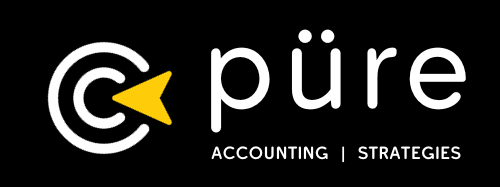Generative AI in Accounting: A Promise of Efficiency or a Risk to Watch?
Generative Artificial Intelligence (AI) is making headlines—especially with the rise of platforms like ChatGPT. But beyond the buzz, what are the real applications—and limitations—of this technology in the world of accounting?
At PÜRE, we believe in the power of technology… as long as it's well understood, properly framed, and used strategically. Here’s what you need to know about generative AI and its (potential and real) impact on the accounting profession.
⚙️ What is Generative AI?
Generative AI is a category of artificial intelligence capable of creating content from existing data. It can write texts, produce summaries, answer questions, analyze data, and even generate code or images.
In an accounting context, this can mean:
- Automatically generating narrative reports (financial performance summaries, letters to tax authorities, etc.);
- Assisting in the drafting of explanations for variances or forecasts;
- Offering quick analysis of cash flows or performance indicators;
- Creating templates for client or supplier follow-up emails.
But beware: while these tools can speed up certain tasks, they do not replace professional judgment or the level of rigor required in accounting.
📈 What Are the Benefits for SMEs and Professionals?
Generative AI can provide valuable support by:
1. Saving time on repetitive tasks
Automating certain reports or emails helps free up time for higher-value work.
2. Improving financial communication
AI tools can help simplify complex financial data for entrepreneurs or stakeholders.
3. Supporting strategic analysis
By combining accounting and operational data, AI can highlight trends or anomalies worth deeper exploration.
⚠️ What Are the Risks to Consider?
1. Data accuracy
Generative AI can “make up” information or generate errors if misused. It is essential to manually validate every piece of generated content.
2. Confidentiality of information
Sensitive data should never be entered into public AI platforms without precautions. Many tools retain submitted prompts to further train their models.
3. Ethical and legal considerations
In Quebec and Canada, the use of personal data is already regulated. Ensuring legal and professional compliance is critical when using AI.
🛠️ How to Safely Integrate Generative AI?
Here are a few practical tips to integrate this technology wisely:
- Define clear use cases: Use AI for drafts, summaries, or exploratory analysis—never for final decisions or accounting calculations.
- Train your team: Ensure everyone understands the tools' limitations and follows best practices.
- Choose appropriate tools: Some platforms offer “enterprise” versions with greater security and confidentiality controls.
- Implement validation controls: All AI-generated outputs should be reviewed and approved by a qualified human professional.
🧩 In Conclusion
Generative AI presents an exciting opportunity for accounting professionals—if approached with awareness, caution, and structure. Used strategically, it can enhance efficiency and enrich the services offered to clients.
But it will never replace human expertise, professional rigor, and a nuanced understanding of business realities. In that sense, AI should be seen as a complementary tool, not a substitute.
🤝 Interested in exploring the integration of tech tools into your accounting processes?
Our team at PÜRE can guide you in making the right choices based on your needs, budget, and digital maturity level. 📅 Schedule an exploratory call to learn more about our services: https://calendly.com/purestrategies/30min
📞 Feel free to contact us at (450) 288-3342. Our team is here to help and guide you with pleasure!
PÜRE Team
